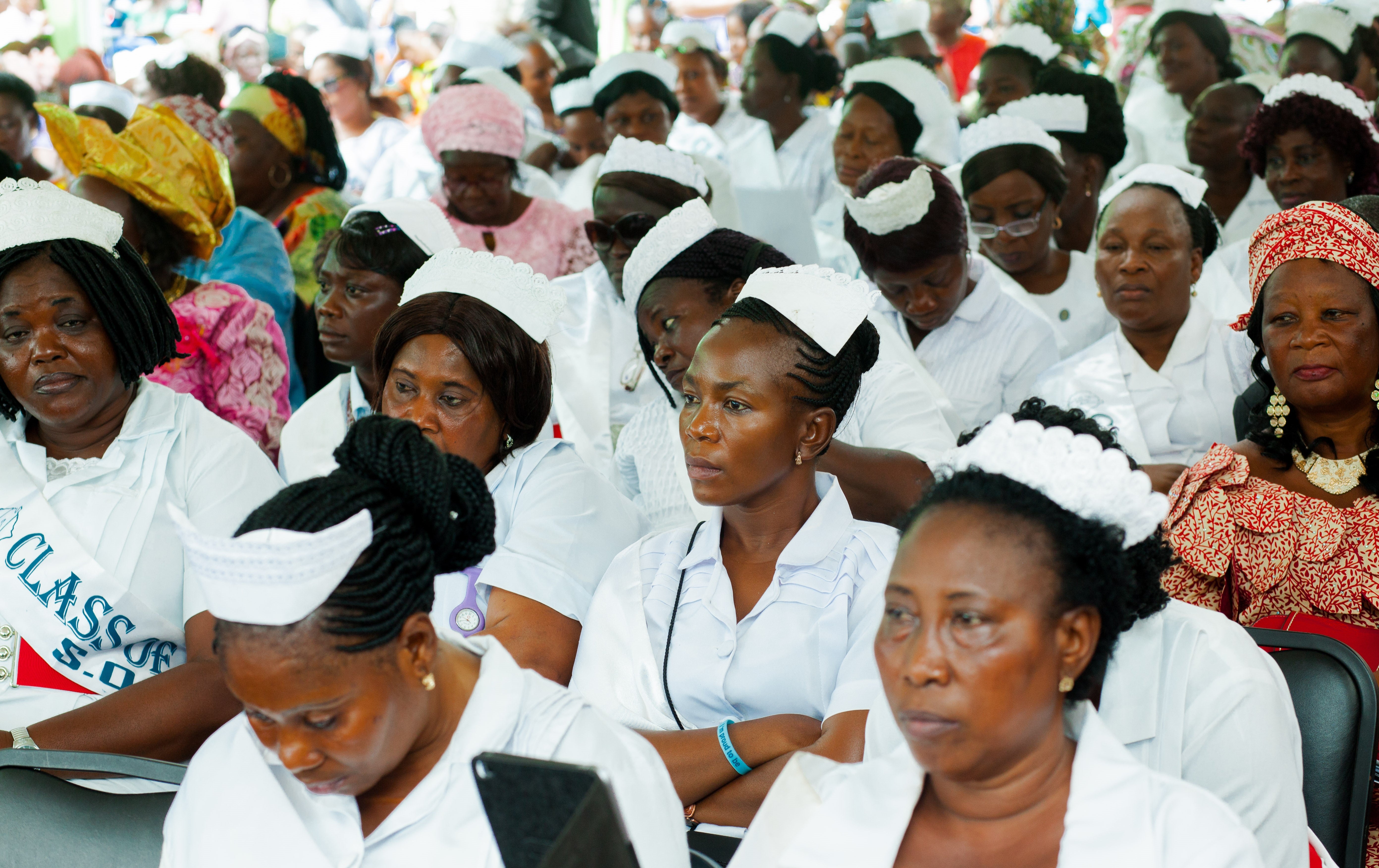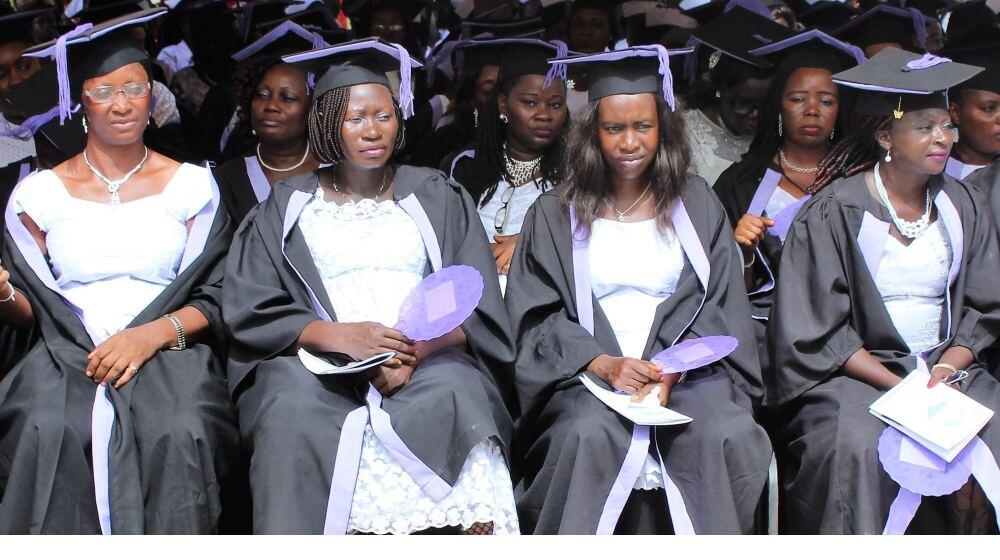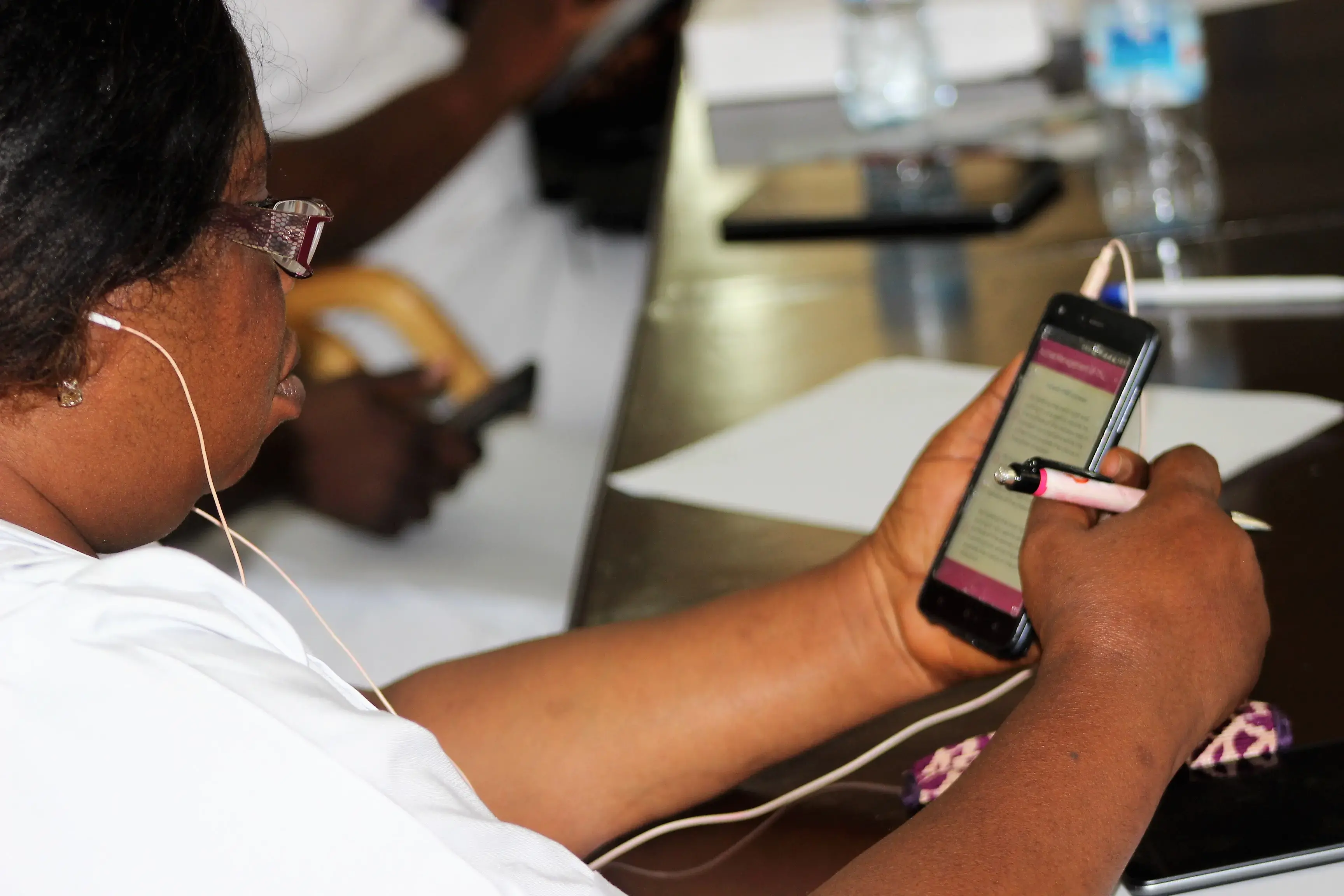MAKENI, Sierra Leone, 23 August 2021 - Francess Forna, head of the School of Midwifery in Makeni, is upbeat about the support the United Nations Population Fund (UNFPA) provides to Sierra Leone’s midwifery programme.
“The support by UNFPA is huge. We cannot underestimate that. It has been very consistent and for that we are very grateful because, it shows they [UNFPA] are aware of the role of midwives as lead professionals in promoting maternal and newborn health issues,” recounted a joyful Francess Forna as she spoke of the partnership between UNFPA and the School of Midwifery in Makeni, Bombali, north of Sierra Leone.
Midwives play an essential role in the care of women during pregnancy and childbirth. They remain the basis of UNFPA’s work in achieving the three goals of zero preventable maternal deaths, zero unmet need for family planning and zero gender-based violence and harmful practices against women and girls.
In the last 10 years, UNFPA’s support to the midwifery programme has contributed in turning out over 1,000 additional trained midwives. The support includes developing major strategies and critical policy documents, including the preceptorship policy and implementation guidelines meant to guide the implementation and enhance the quality of clinical practice for midwifery students.
With funding from UK aid, UNFPA is working with the Schools of Midwifery in Bo and Makeni and the National School of Midwifery in Freetown to train midwives and thus improve the availability of skilled birth attendants in Sierra Leone, a crucial factor in ending maternal death.

The School of Midwifery in Makeni, presently with over 100 students, was established in 2010 by the Ministry of Health and Sanitation to help address the seeming increase in maternal and infant mortality and to increase the number of midwives in the country.
Speaking about the school’s relationship with UNFPA, Francess Forna continued: “UNFPA has been a trusted partner since the establishment of this [School of Midwifery] institution. The support has been mainly to enable us to provide the needed workforce for the health sector. So far, out of the 689 midwives that have graduated from this school, UNFPA has fully supported about 500 midwives who are presently deployed to various health facilities across the country.”
“The support includes tuition fees, and allowances which students use to pay for their accommodation since our hostel cannot accommodate more than 48 students,” she explained. “Often, they [students] will use their study allowance to also travel to their clinical placement areas especially for those hard-to-reach communities.”
“Before the establishment of this school, there were no midwives working in rural communities. As it is today, those we train are mainly deployed in rural communities to help improve maternal and infant health. As a country, we now boast of having skilled birth attendants in various districts and this is important.”
The support by UNFPA, Forna believes, is of tremendous benefit to the country which has witnessed a reduction in maternal mortality by almost 40 per cent in a space of five years, from 1,165 deaths per 100,000 live births in the 2013 Sierra Leone Demographic and Health Survey (SLDHS) to 717 deaths per 100,000 live births in the 2019 SLDHS. There is also an increase in percentage of births attended by skilled birth attendants from 60 per cent in the 2013 SLDHS to 87 per cent in the 2019 SLDHS.
“Midwives are now able to attend to complications and where necessary, make early referrals, thus reducing the risk of pregnant women dying due to childbirth-related complications,” Forna said.
Despite the progress the country has made in recent times, Forna believes, there is still more to be done.
Reducing maternal mortality to less than 70 deaths per 100,000 live births, in line with the 2030 Agenda for sustainable development, requires training more midwives.
With the existing figure of about 150 midwives trained yearly, Sierra Leone may not reach the over 3,000 midwives required to meet the acceptable standards for the midwifery workforce. However, an optimistic Francess Forna added that “though they [midwives] are still inadequate, the country is gradually moving towards getting the required numbers.”
For more information, please contact:
John Baimba Sesay
Web and Media Analyst
UNFPA Sierra Leone
Email: jsesay@unfpa.org
Tel: +232 30953193/ +23279369395





